Grove: ‘Impending doom definitely plagues my mind, but I’ve sought out the tools to deal with that’
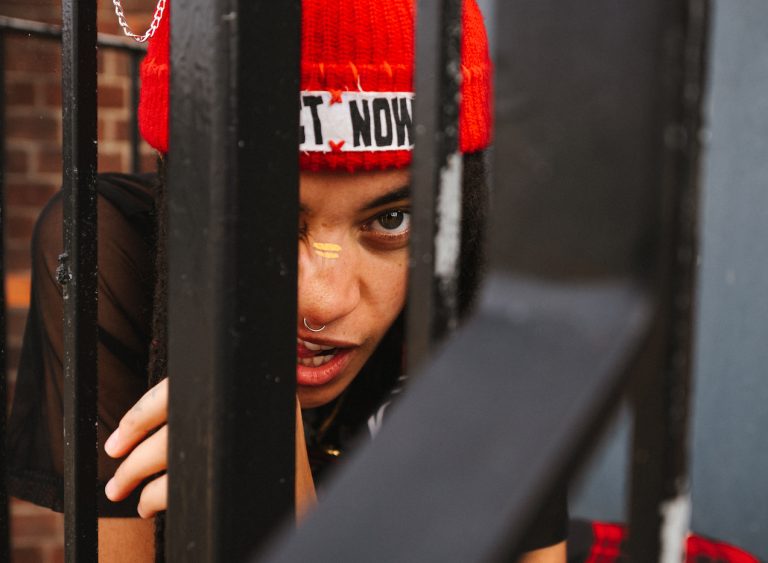
Grove is sitting opposite me in the beer garden of the Cadbury, in Montpelier, nursing half an IPA. Wearing chunky black boots and a black hoodie against a chilly autumn wind, they lean on the table, revealing a tattoo on each forearm.
“This one is unity in diversity,” Grove says, pointing to two conjoined crocodiles on their right arm, “which I think is just a great principle to try and live by.”
The tattoo is an Adinkra symbol, used by the Akan people of Ghana to represent proverbs and aphorisms, which are frequently used in printing and textiles.
“This is just a little sign of good living,” Grove continues, pointing to the symbol on their left arm. “That’s kind of what I want to be coursing through the veins. Good, well-intentioned living.”
This neatly summarises Grove’s approach to life and music, encapsulating their belief in the strength that comes through collective endeavours.
The non-binary artist has made a substantial impact in a short space of time with a number of releases – including the EPs Spice and Queer + Black – which unashamedly celebrate queer sexuality while taking aim at larger social forces through a frenetic mix of punk-tinged dancehall, garage and sprinklings of jungle. Underpinning this potent creative output is a quiet self-confidence, a fierce intellectual curiosity and a desire to understand the world around them.
‘Things make a lot more sense here’
Grove’s music has found a natural home in Bristol, which has been their base for nearly five years, though they were born and grew up in Cheltenham. “Things make a lot more sense here, compared to Cheltenham. The older I got, the more I was like, ‘none of this makes sense,’” they say of their hometown.
Born to a Jamaican mother and Irish/English father, growing up in the town wasn’t always easy. As a teenager, Grove’s Black and queer identity felt at odds with the more monolithic culture the town had to offer.
They soon found themselves gravitating towards Bristol, lured by grime and dub nights, and events hosted by queer people of colour. Bristol’s more politically engaged culture also felt more welcoming.
At some drum and bass nights is, you walk in and it’s like, ‘Is anyone connecting with each other here?’
“It feels like the total opposite energy of [Cheltenham]. It feels like there’s an awareness [of political issues], and also a wildness that I enjoy.” But despite feeling at home in the city, there are also aspects of its underground music scene that they find troubling. “I think there’s quite a big problem with ketamine,” they say. “What I see at some drum and bass nights is, you walk in and it’s like, ‘Is anyone connecting with each other here?’”
Grove sees the tendency for some young people to want to disassociate from reality as stemming from a mix of factors, including ecological anxiety and financial insecurity. “There is this impending doom that definitely plagues my mind. Luckily, I’ve wanted to seek out the tools to be able to deal with that in a way that doesn’t involve narcotics and drinking.”
This has resulted in both a deeply disciplined creative practice – by the time we meet, Grove has already been in the studio all day – and an emphasis on forging connections with like-minded musicians.
‘Punk is just unbridled expression’
Over the summer, Grove played their first festival season, including an appearance at London’s Decolonise Fest, which is run by and for punks of colour, and has been on their radar since its inception in 2017. “Seeing how Decolonise approaches things in terms of [putting] marginalised voices first – it was wicked to be embraced.”
Having toured with London duo Bob Vylan – who explore similar issues of race and class through the overlap of punk, hip hop and grime – I ask Grove about their relationship to punk, as someone who admits to having grown up on a sonic diet of pop-rock, reggae and Cyndi Lauper.
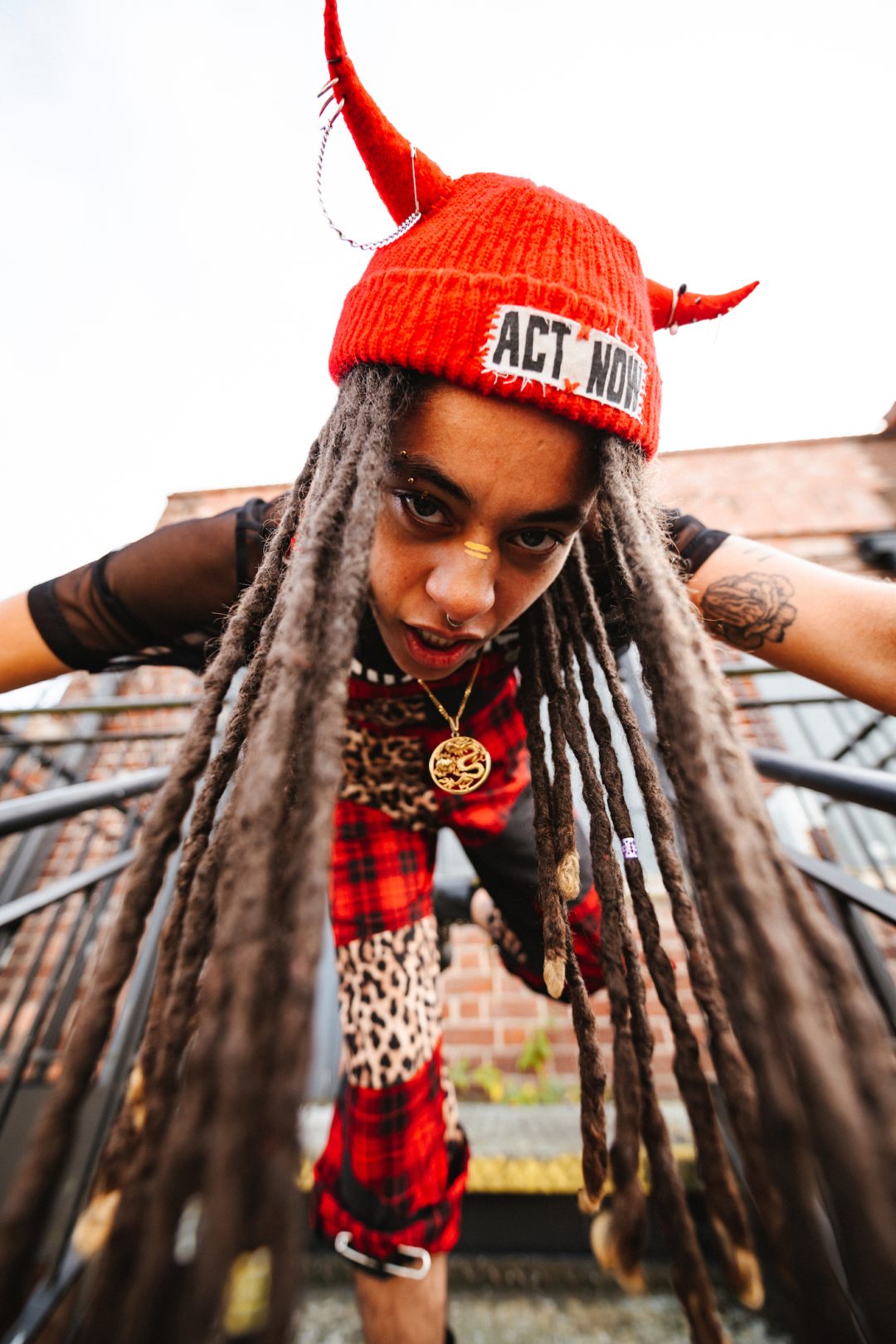
“My definition of punk is just unbridled expression that definitely has a political ethos, and also a community ethos,” they say after a long, thoughtful pause. “There is an abrasiveness about it, definitely. But it’s more about what you’re expressing.”
Part of what Grove is expressing is vulnerability and sensuality: “I’ve got a lot of aggression to put out into the world. But I couldn’t fully relate to pure aggression for aggression’s sake. It was lacking a certain ‘femininity’ that obviously I would resonate with, being socialised as a female.”
They describe the aggressive energy they expel through their music as stemming from feelings of isolation they experienced as a teenager, while the vulnerability comes from wanting to be able to express tenderness at the same time.
Wanting to be vulnerable also complicates Grove’s relationship with dancehall, which shapes so much of their music. While the genre has evolved significantly, many dancehall records from the 80s and 90s remain tainted by their associations with homophobia and misogyny.
“Sonically, I enjoy it, but as soon as I hear the misogynistic aspects and the homophobia, it’s like [an] instant switch off. So all of the dancehall that I do enjoy tends to be from female artists.” They mention artists such as Spice, Shenseea and Stefflon Don, all of whom offer “a sense of empowerment rather than degradation”.
‘Each of us holds power’
The word empowerment comes up several times in our conversation and I ask Grove what they mean by it. “Again, something I’ve been thinking about a lot recently. Say power to one person, and they’re like, ‘Oh yeah, Elon Musk – he’s powerful!’. But the form of power that I think about is this sense of shared power – power that everyone innately has.”
This interest in the nature of power reflects a voracious hunger for knowledge. Despite having been deterred from going to university by sky-high tuition costs, Grove references books on history and politics including Akala’s Natives, David Olusoga’s Black in Britain and Sathnam Sangera’s Empireland as having inspired them.
“The trade union movement at the minute is something that I’m finding quite empowering,” Grove says, mentioning having taken part in a rally organised by the Enough is Enough campaign the previous weekend. “Growing up, you’re taught that unions are not a good thing, they’re nasty. But that’s just pure propaganda.”
This political consciousness finds overt expression on unbridled tracks like ‘Fuck Ur Landlord’, from 2021’s Queer + Black, initially born out of a personal experience when Grove first moved to Bristol with a landlord that painted over a mould problem. “There were slugs all over the floor because of the amount of damp in the house. And their solution was just to paint over the mould again.”
Incensed by the poor conditions many renters find themselves in, Grove decided to donate all proceeds from the track to ACORN, a community union that campaigns for decent housing.
It’s an example of how for Grove, issues of personal autonomy and wider political change are intimately linked: “Each of us holds power, and we just decide where our power gets allocated in what we spend our time doing.”
The music Grove makes charts the chaotic but joyous path towards empowerment, both for the individual and the collective: “Power is this infinite pool of everything. The more that you share it, the more it grows.”
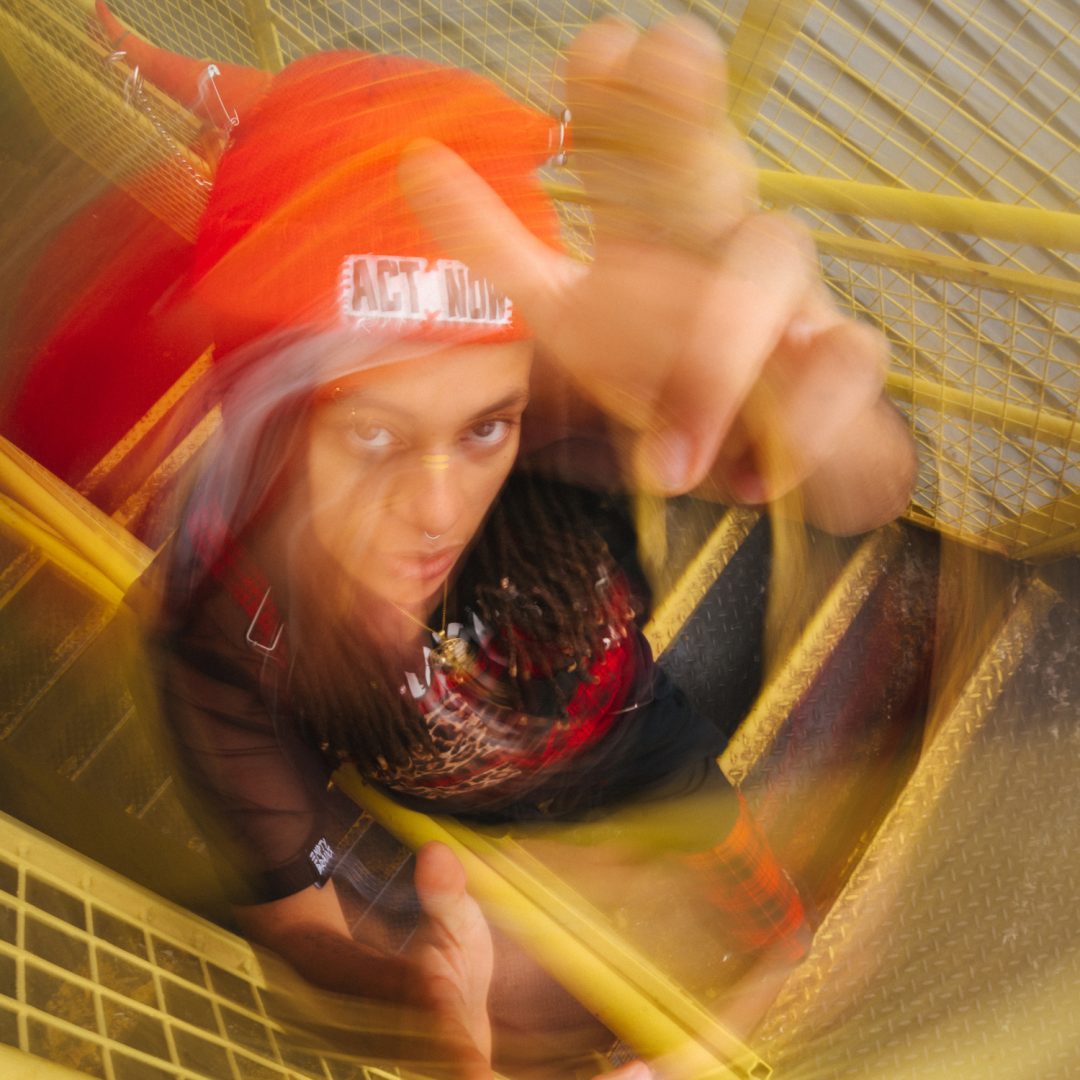


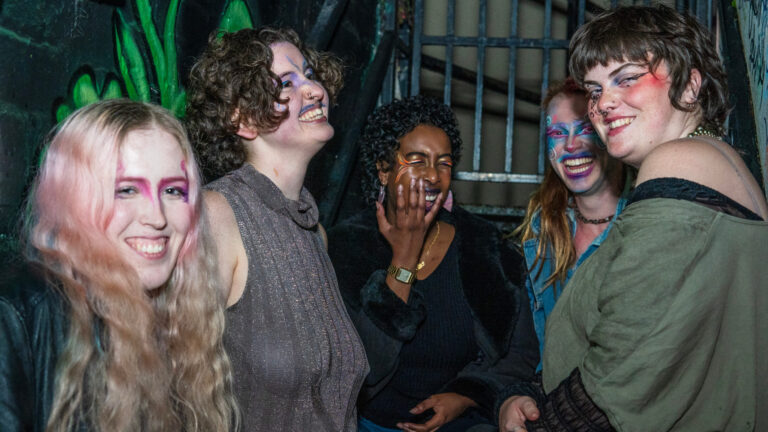

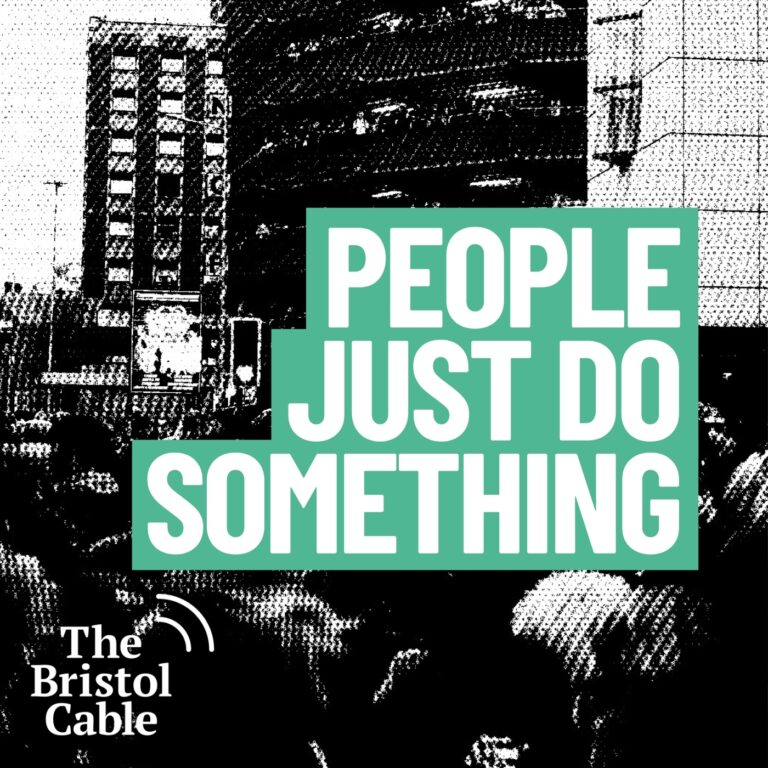


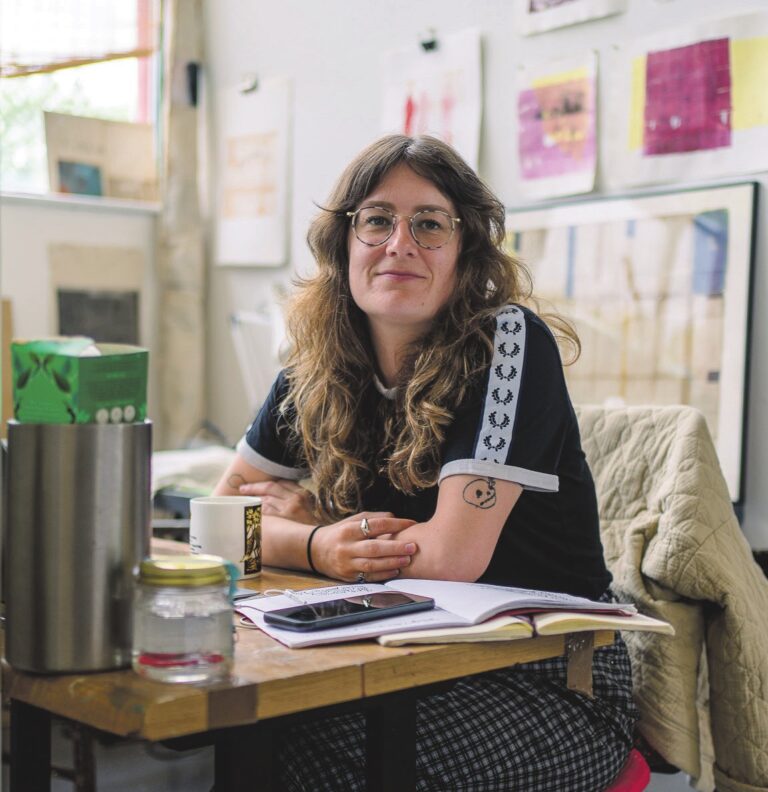

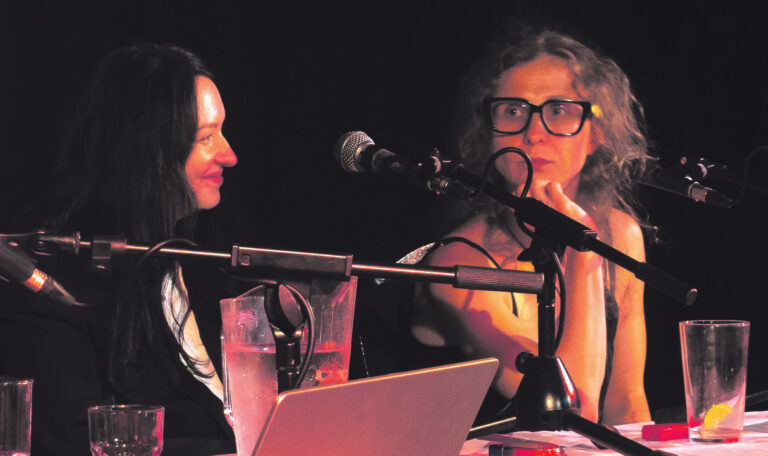
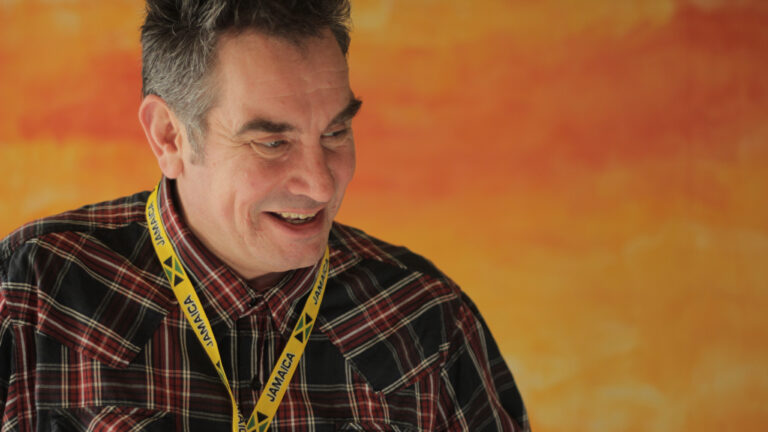

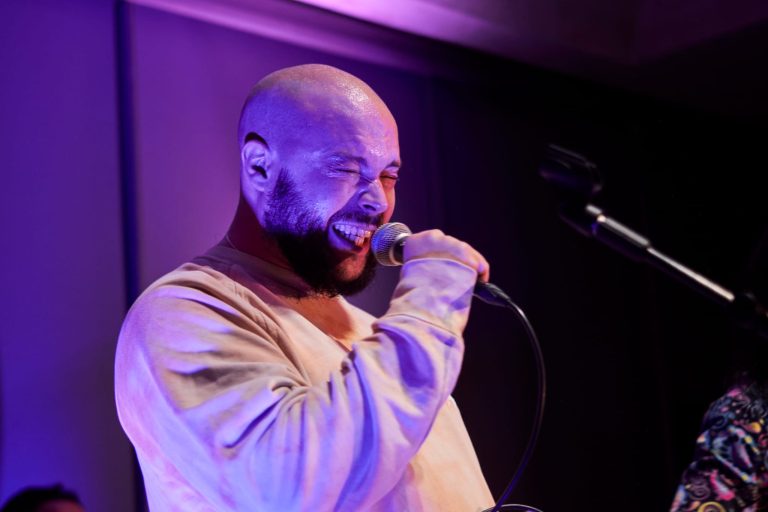


Report a comment. Comments are moderated according to our Comment Policy.